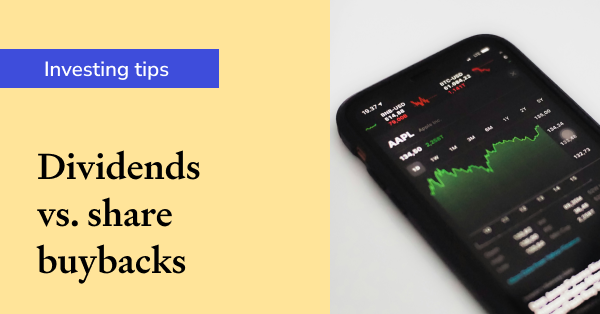What is impact investing?
Investing that emphasises positive social change – or at the very least on doing no harm – is not new, but some of the terminology used to describe "ethical" or impact investing can be confusing. For example, how does ESG investing differ from sustainable investing, do they overlap and what is the best action for investors to take? As companies continue to prioritise decision-making that benefits stakeholders alongside stockholders, investors are increasingly searching for forward-looking metrics as a means of assessing portfolio risk beyond traditional financial measures. As a result, socially responsible or impact investing has morphed into a significant and fast-growing asset class that now looks far beyond simply excluding companies associated with negative outcomes.

What is impact investing?
Impact investing is a broad, umbrella term that typically encompasses all aspects of environmental, social and governance (ESG) investing and sustainable or socially responsible investing (SRI). It is a general investment strategy that seeks to generate financial returns while also creating a positive social or environmental impact. Investors who add these factors to their decision-making are increasingly able to invest sustainably while maintaining the same level of financial returns as they would with a standard investment approach. According to the International Finance Corporation’s latest estimate of the global market for impact investments, US$2.3 trillion were being invested for impact in 2020, of which US$636 billion clearly have an impact management system in place.
A rapidly growing market
According to figures released by the Responsible Investment Association Australasia (RIAA), 67% of Australians believe ethical or responsible banks perform better in the long term, and 62% believe ethical or responsible superannuation funds perform better in the long term. This is a significant shift from 2017 when only 29% believed this.
With interest in responsible and ethical investing at an all-time high, Australian investors are increasingly expecting investment products to be verified as delivering on their promise. Globally, this trend towards impact investing has been boosted by existential risk factors like the COVID-19 pandemic and increased awareness of climate change. While the definition of SRI encompasses avoidance of harm, impact investing also suggests positive impact via its investments, which is increasingly shaping the way companies do business around the globe.
Impact investing criteria
Broadly, impact investments are investments made with the intention of generating a positive, measurable social and environmental impact alongside a financial return. These investments can be made in both emerging and developed markets and target a range of returns, depending on the investor or fund manager’s benchmark for returns.
In 2019, the Global Impact Investing Network defined four core characteristics of impact investing to underpin baseline expectations of what it means to practice impact investing. These are:
-
Intentionality – An investor should have the intention to make a positive social or environmental impact through their investments.
-
Return expectations – Impact investments are expected to produce a financial return on capital or at least, a return of capital.
-
Asset class range – Impact investments aim to generate financial returns ranging from below market to risk-adjusted market rate, and can be made across a range of asset classes, such as cash equivalents, fixed income, venture capital and private equity.
-
Impact measurement – One key indicator of impact investing is an investor’s commitment to measure and report the social and environmental performance of underlying investments, promoting transparency and accountability.
Types of impact investing
Socially responsible (SRI) and environmental, social and governance (ESG) investing are the two most popular approaches to impact investing, although there is still some disagreement over terminology in the investing community.
SRI puts a premium on positive social change by considering both financial returns and moral values in investment decisions. This strategy emphasises financial returns as a secondary consideration after the investors’ moral values have been accounted for in their decision-making.
ESG refers to a broad range of environmental, social and governance criteria on which companies are measured. It reflects consumers' growing sensitivity to how companies operate as factors in their buying decisions, and it is of increasing interest to investors who are concerned about companies adopting practices that will mitigate risk and ensure their long-term sustainability. As a result, ESG issues are increasingly shaping the way companies do business around the globe and ESG is seen by many as an evolution of the trend towards socially responsible investing.
Cons and greenwashing
While using impact investing criteria to steer investment decisions is now becoming much more widely accepted, as with any investments, this strategy comes with different levels and types of risk. Ultimately, for a company to drive for impact along with financial profit is arguably more ambitious than purely focusing on the traditional profit-making objectives. However, the supply of investment opportunities offering scale, impact, and financial return sometimes falls behind the demand. As a result, it can be difficult for impact investors to find deals that fit their investment criteria and philanthropic orientation.
The quality of the advice available is another issue, as financial advisers have not traditionally been competent in the social aspects of impact investing, while philanthropic experts typically do not have expertise in making financial investments. While there have been great strides in standards for impact investment performance, coordinating an industry standard of impact measurement (as with traditional investment analysis) has proven difficult. As a result, there is plenty of risk of greenwashing, which occurs when a company purports to be environmentally conscious for marketing purposes but isn’t making any notable sustainability efforts.
Track your investment performance with Sharesight
Thousands of investors worldwide are already using Sharesight to automatically track the performance of their investment portfolio. What are you waiting for? Sign up and:
-
Track all your investments in one place, including stocks in over 40 major global markets, mutual/managed funds, property, and even cryptocurrency
-
Automatically track your dividend and distribution income from stocks, ETFs and mutual/managed funds
-
Run powerful reports built for investors, including Performance, Portfolio Diversity, Contribution Analysis, Multi-Period, Multi-Currency Valuation and Future Income (upcoming dividends)
-
Get the true picture of your investment performance, including the impact of brokerage fees, dividends, and capital gains with Sharesight’s annualised performance calculation methodology
Sign up for a FREE Sharesight account to start tracking your performance (and tax) today!
FURTHER READING

How Sharesight helps advisors track net worth and simplify compliance
We talk to Ryan Jones, Partner, Accountant and Financial Advisor at Jones Louros, about how he uses Sharesight to manage his clients’ investment trusts.

Automatically track Swissquote trades with Sharesight
If you trade using Swiss broker Swissquote, you can automatically import your trading data to your Sharesight portfolio.

Dividends vs. share buybacks: Which is better for investors?
We take a look at dividends and share buybacks, discussing the pros and cons of each, the tax implications and which one is more beneficial for investors.